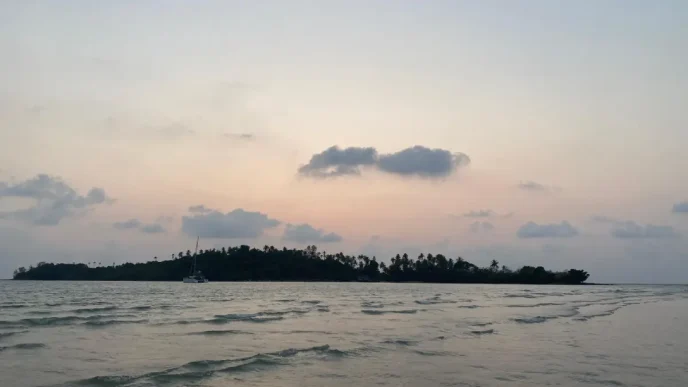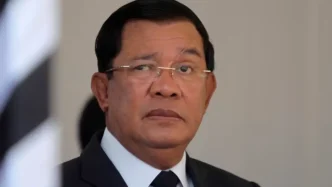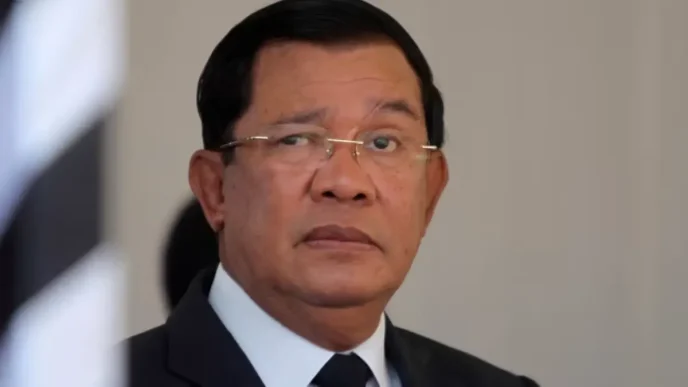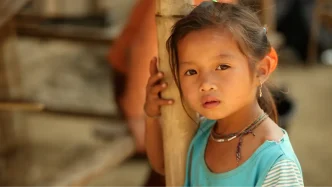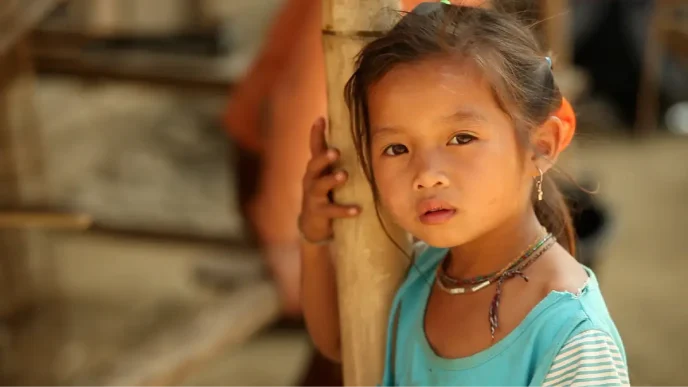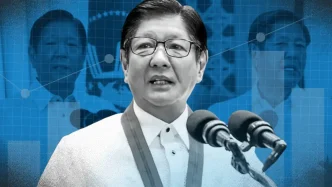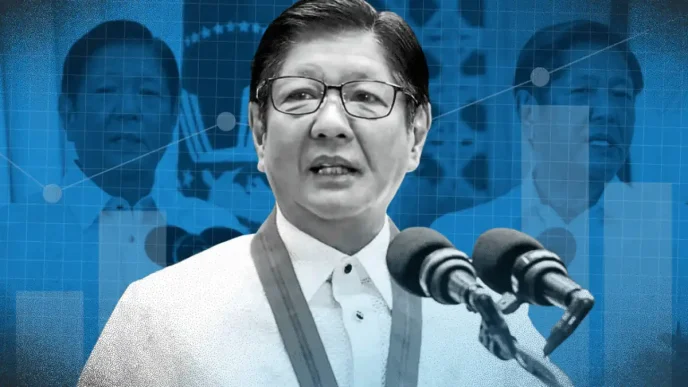A former Singaporean diplomat has been dismissed from service following a disturbing incident in Tokyo last year, where he was caught secretly filming a teenage boy and other individuals in a public bathhouse. The case of Christopher Sim Siong Chye, a seasoned counsellor at the Singapore Embassy in Japan, has raised questions about diplomatic conduct, accountability, and the boundaries of immunity, while prompting scrutiny of how such breaches are handled across borders.
Incident in Tokyo Sparks Outrage
On February 27, 2024, Sim, then 56, was caught using his smartphone to record an undressed 13-year-old junior high school student in the changing room of a public bath in Tokyo. According to reports from Japan’s national broadcaster NHK, a search of his device revealed not only footage of the teenager but also recordings of multiple other male customers, seemingly taken in the communal changing area. Investigators later discovered that Sim had amassed at least 700 images over a six-month period, capturing individuals without their consent at various public baths across the city.
Sim admitted to Japanese authorities that he had engaged in such behavior at other locations as well. Although he deleted the images on the spot when confronted, the scale of the recordings pointed to a pattern of deliberate misconduct. At the time of the incident, Sim’s status as a diplomat granted him immunity from prosecution under international conventions, preventing immediate detention by local police. This legal shield, intended to protect diplomats from host country pressures, became a point of contention as public outrage grew over the nature of the offense.
Diplomatic Immunity and Return to Singapore
Following the incident, Sim completed his tour of duty in mid-April 2024 and returned to Singapore. The Singapore Ministry of Foreign Affairs (MFA) responded by suspending him from duty to assist with investigations. On May 2, 2024, the MFA announced its willingness to waive Sim’s diplomatic immunity to facilitate cooperation with Japanese authorities, signaling a commitment to accountability despite the complexities of diplomatic protocol.
Days after this announcement, the Tokyo Metropolitan Police Department, through Japan’s Foreign Ministry, formally requested Sim’s return for questioning. On June 9, 2024, Sim voluntarily traveled back to Japan, reportedly expressing remorse for his actions. As reported by the Asahi Shimbun newspaper, he stated that his decision to return was of his own volition, driven by a sense of responsibility. This gesture, while significant, did little to quell concerns about the initial delay in addressing the allegations due to his protected status.
Legal Consequences and Dismissal
Upon his return to Japan, Sim faced charges related to trespassing in the bathhouse and violating a Tokyo government ordinance on public disturbances. He was fined 300,000 yen (approximately US$2,000 as of the exchange rate on May 24, 2025), a penalty that some critics argued was lenient given the invasive nature of his actions. The legal outcome, constrained by the specifics of local ordinances and the initial immunity barrier, left many in Japan and Singapore questioning whether justice had been adequately served.
Back in Singapore, the government took decisive action. On April 2, 2025, Sim was officially dismissed from the Ministry of Foreign Affairs, as recorded in a government gazette notice on the same day. This termination marked the end of a career that began in 1993, during which Sim had risen to the rank of counsellor—a position reserved for experienced foreign service officers. Beyond his diplomatic role, Sim was also a published author, having documented his travels across several countries between 1995 and 2004 in a book. His dismissal, however, overshadowed these achievements, casting a shadow over his decades of service.
Broader Implications for Diplomatic Conduct
The case of Christopher Sim Siong Chye has ignited a broader debate about the ethical responsibilities of diplomats and the mechanisms in place to address misconduct. Diplomatic immunity, enshrined in the 1961 Vienna Convention on Diplomatic Relations, is designed to ensure that envoys can perform their duties without fear of harassment or coercion by host governments. Yet, incidents like this highlight how such protections can sometimes shield individuals from accountability for personal wrongdoing, particularly in cases that do not pertain to their official functions.
In Singapore, a nation that prides itself on strict adherence to law and order, the incident has prompted introspection within the foreign service. The MFA’s decision to waive immunity and facilitate Sim’s return to Japan for questioning reflects an intent to balance diplomatic norms with public expectations of justice. However, the time lag between the incident and the final dismissal—over a year—has led some observers to question whether internal processes could be expedited in future cases to avoid perceptions of leniency or delay.
In Japan, the case has fueled discussions about privacy and safety in public spaces, particularly for vulnerable groups such as minors. Public baths, known as onsen or sento, hold cultural significance as communal spaces for relaxation and social bonding. Sim’s actions, targeting unsuspecting individuals in such settings, have been widely condemned as a breach of trust and personal security. Advocacy groups have called for stricter regulations on recording devices in private and semi-private areas, alongside greater awareness of how to report suspicious behavior.
Public and Diplomatic Reactions
Public sentiment, as gauged through social media platforms and local reporting, reveals a mix of anger and disappointment. In Singapore, many citizens expressed frustration over the damage to the country’s reputation, often seen as a model of discipline and integrity in international affairs. Online discussions have emphasized the need for rigorous vetting and ongoing ethical training for diplomats, who serve as representatives of national values abroad.
From a diplomatic perspective, the incident risks straining interpersonal trust between Singapore and Japan, two nations with strong economic and cultural ties. While the MFA’s cooperation with Japanese authorities has been noted as a positive step, analysts suggest that such cases could complicate future postings if host countries perceive a risk of misconduct. Singapore’s swift dismissal of Sim may serve as a signal of zero tolerance for such behavior, potentially mitigating long-term fallout.
Looking Ahead: Accountability in Diplomacy
As the dust settles on this troubling chapter, questions linger about how nations can better prevent and address personal misconduct by diplomats without undermining the principles of immunity that underpin international relations. For Singapore, the dismissal of Christopher Sim Siong Chye closes one case but opens a wider conversation about oversight, mental health support, and ethical grounding for those in high-stress diplomatic roles. Meanwhile, in Japan, the incident underscores the importance of safeguarding public spaces and ensuring that legal frameworks keep pace with evolving privacy challenges.
For now, both countries appear focused on moving forward, with Singapore reinforcing its commitment to integrity in its foreign service and Japan seeking to bolster protections for its citizens. Yet, as similar cases emerge globally, the balance between diplomatic privilege and personal accountability remains a delicate and pressing issue.




